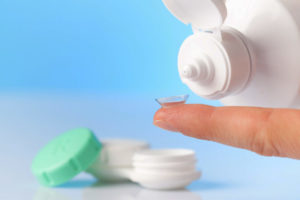
If you’re contemplating this subject with your child, you probably have lots of questions. Is he or she old enough for contacts? Is it safe for their growing and changing eyes? Are there disadvantages? You can call us to discuss these and other concerns, or make a consultation appointment for you and your child to learn more about kids and contacts. Call today: (707) 546-9800. In the mean time, here are some facts to consider when your child says, “Mom, I want contacts!”
Glasses or contacts? Both have advantages and disadvantages
Kids often come to the conclusion that they need contact lenses for two reasons:
- They think contacts will improve their appearance
- Their glasses are interfering with their life and activities
But contacts can also offer many other benefits, and recent research backs up that claim.
Contact Lenses in Pediatrics (CLIP) study
This study evaluated the outcomes of teenagers and children fitted with soft contact lenses for the first time. The study included:
- 85 teenagers (ages 13 to 17)
- 84 pre-teens (ages 8 to 12)
Three months later, the researchers confirmed some beliefs that parents, children, coaches and teachers may have already observed. For example:
- Contact lenses are more convenient for sports and many other activities
- The majority of both groups found it easy to clean and take care of their lenses
- The majority of kids reported receiving positive feedback for wearing them
Perhaps most important, the study participants’ parents agreed that their children felt better and were more confident with contacts.
How do you know if your child is a good candidate for contact lenses?
Start by visiting your eye doctor. Some kids have vision problems or other issues that make contact lenses an unrealistic choice, but this is rare.
